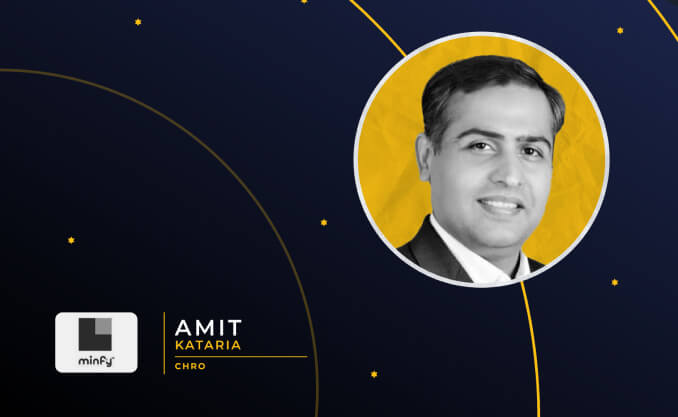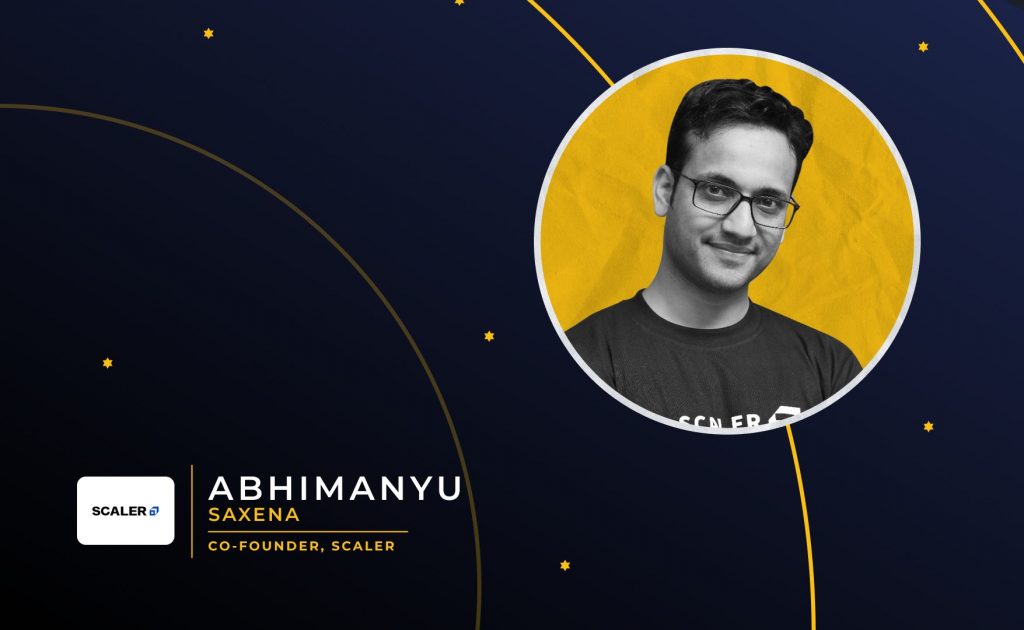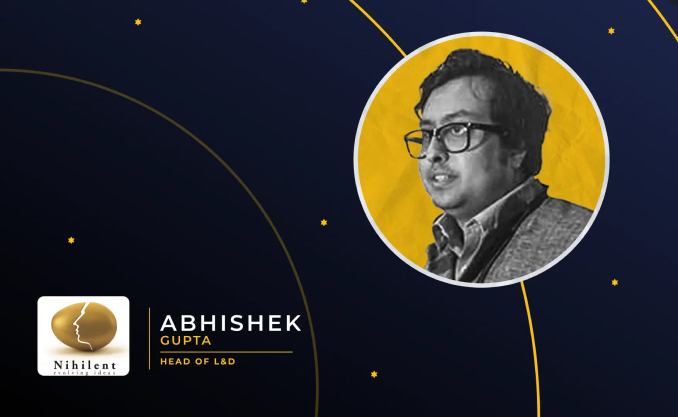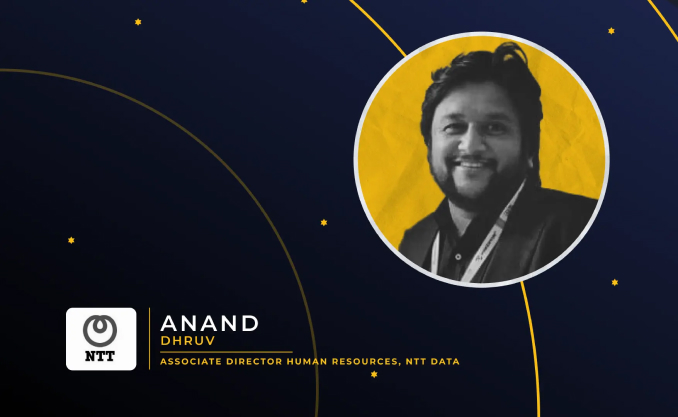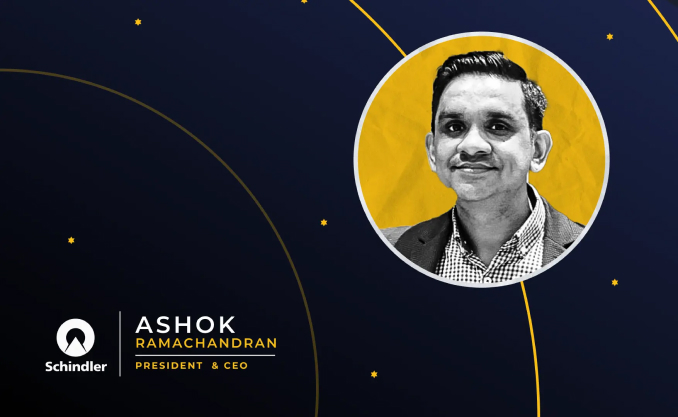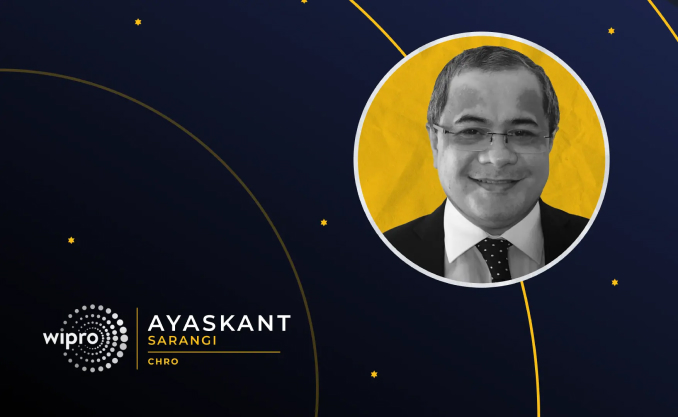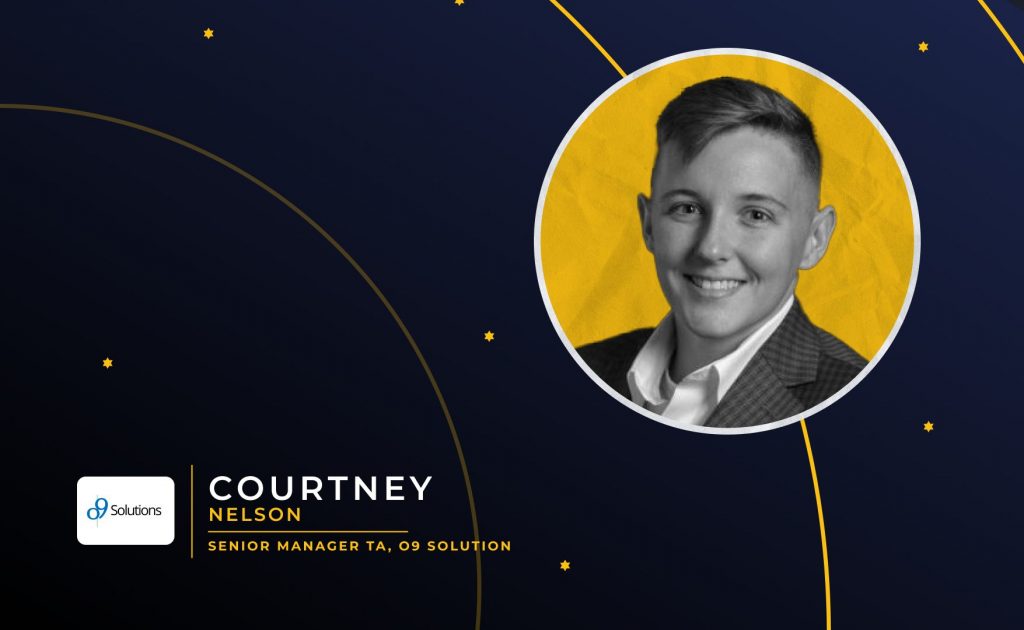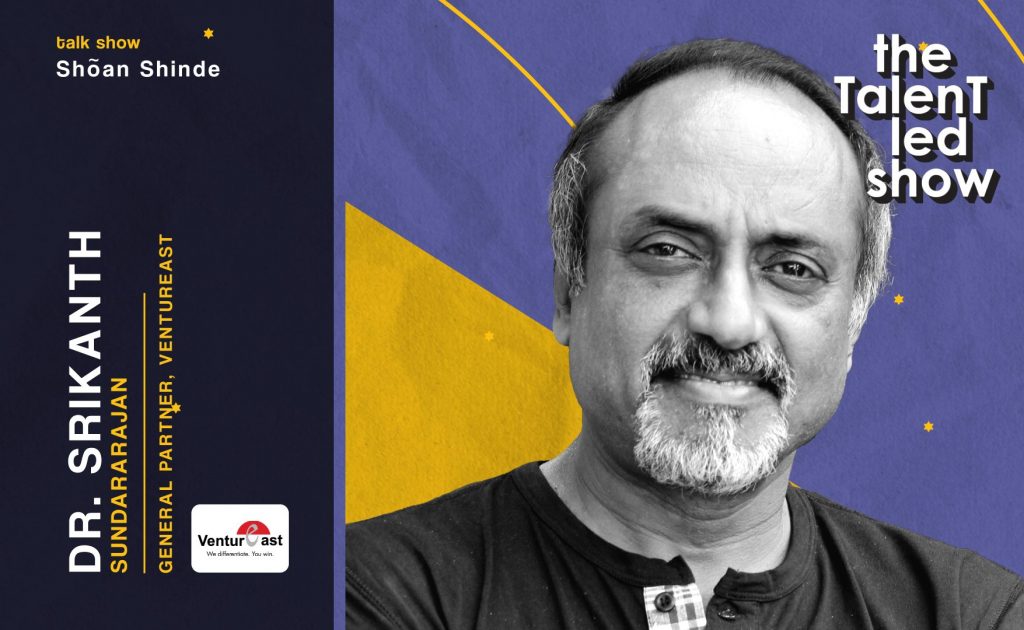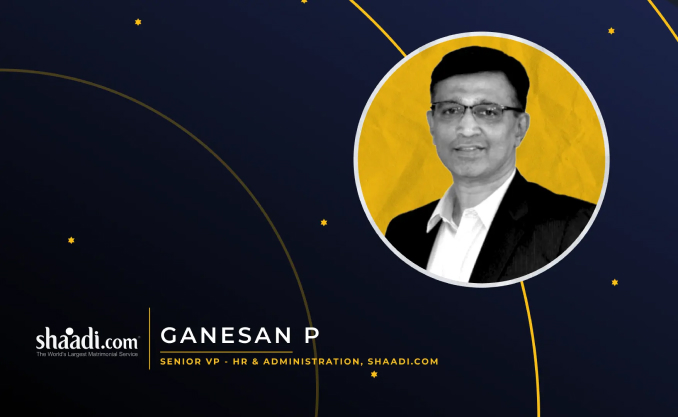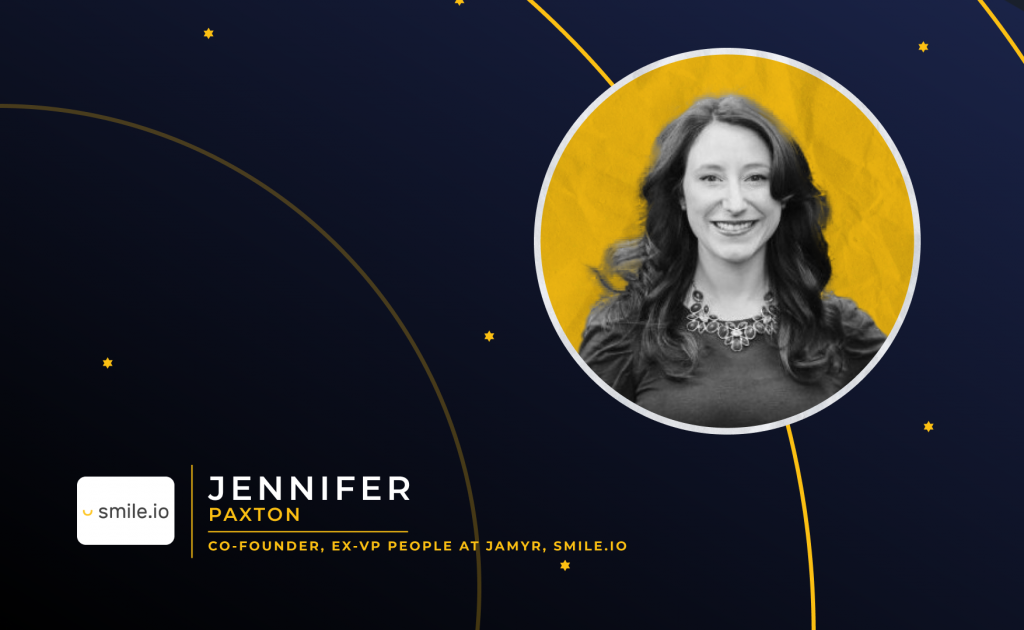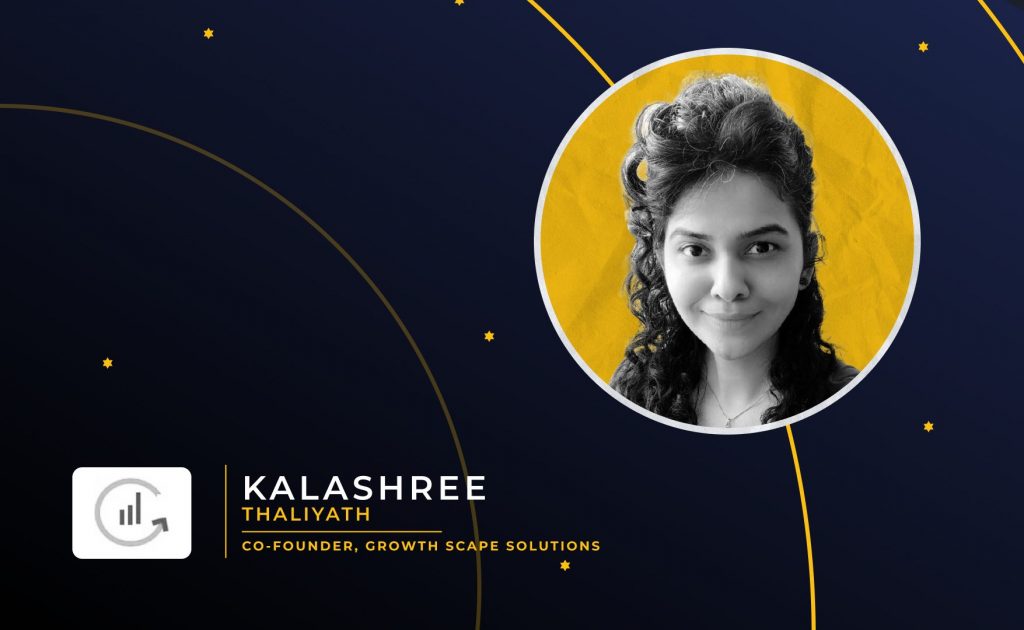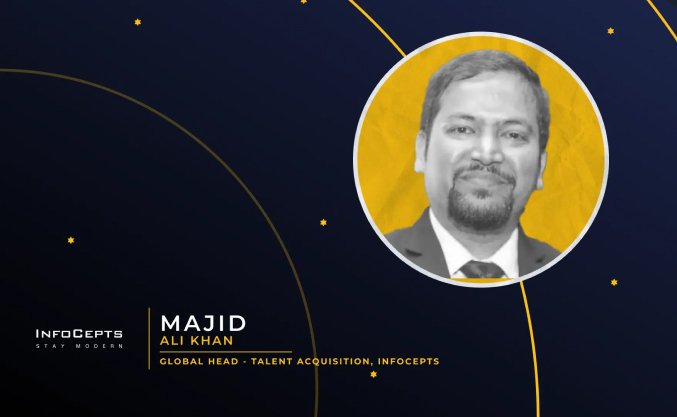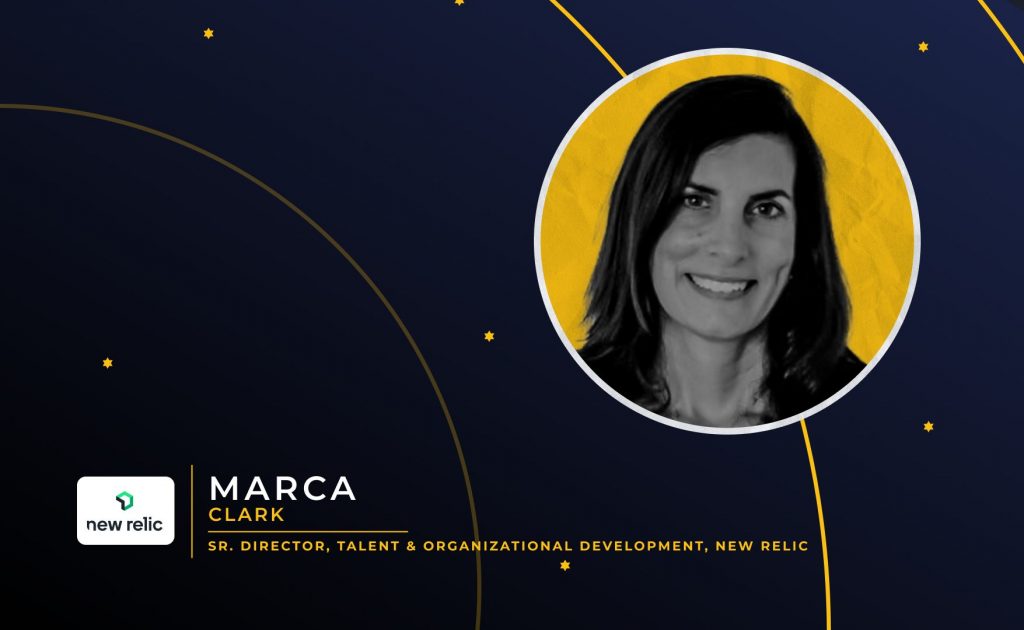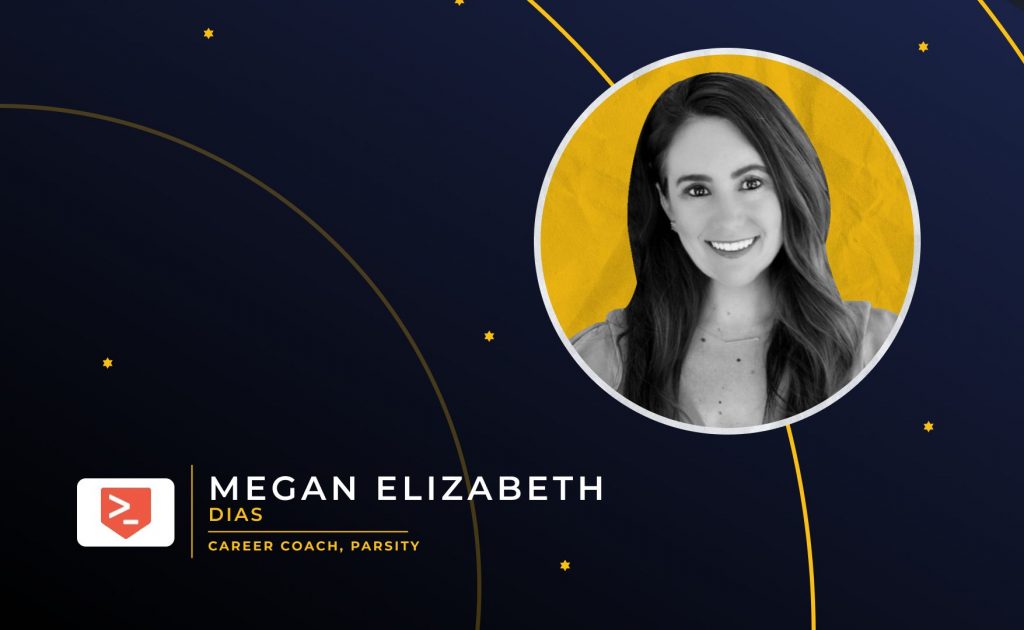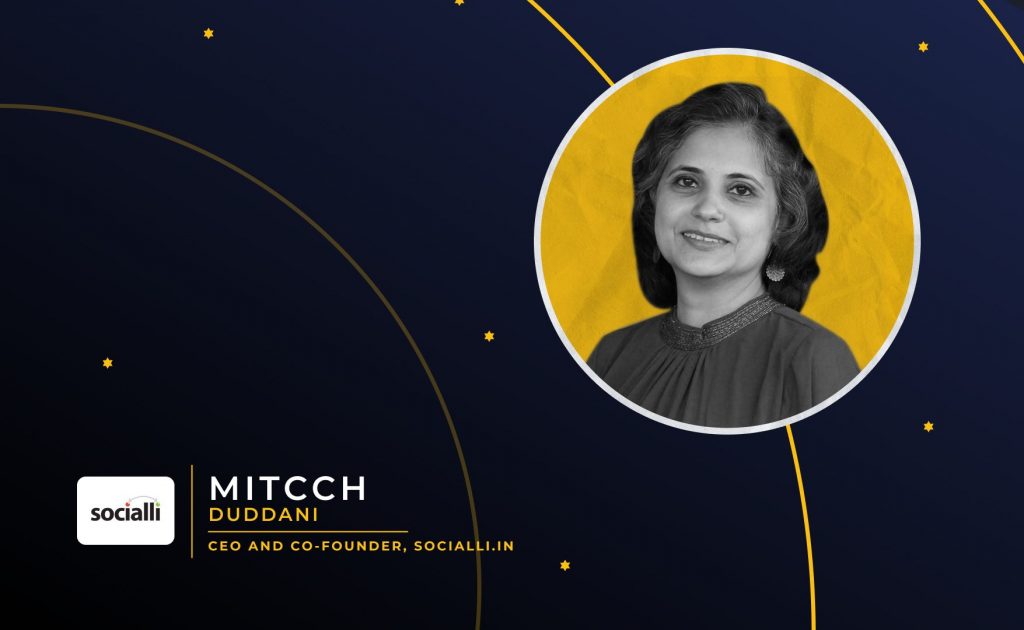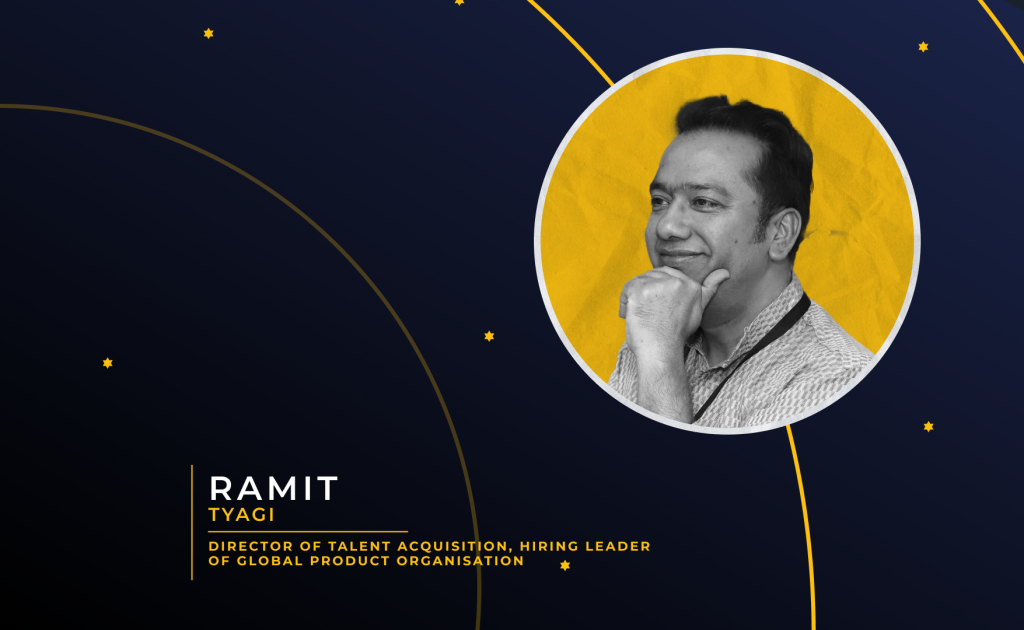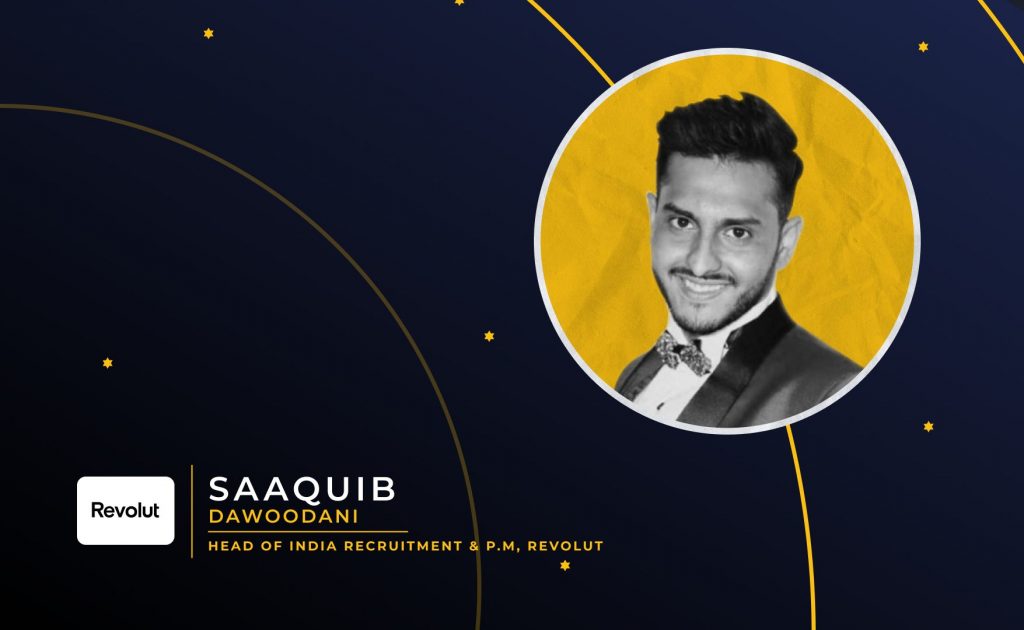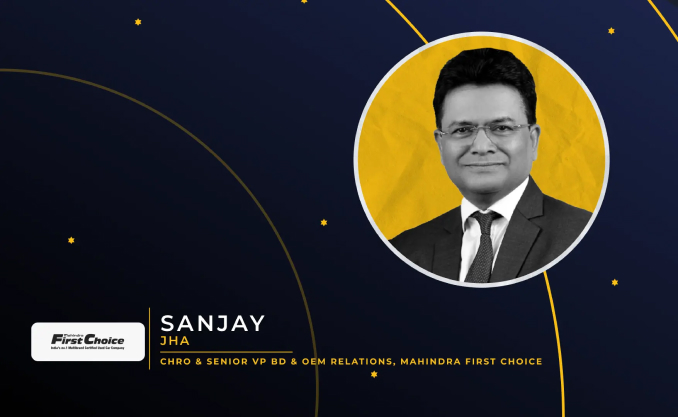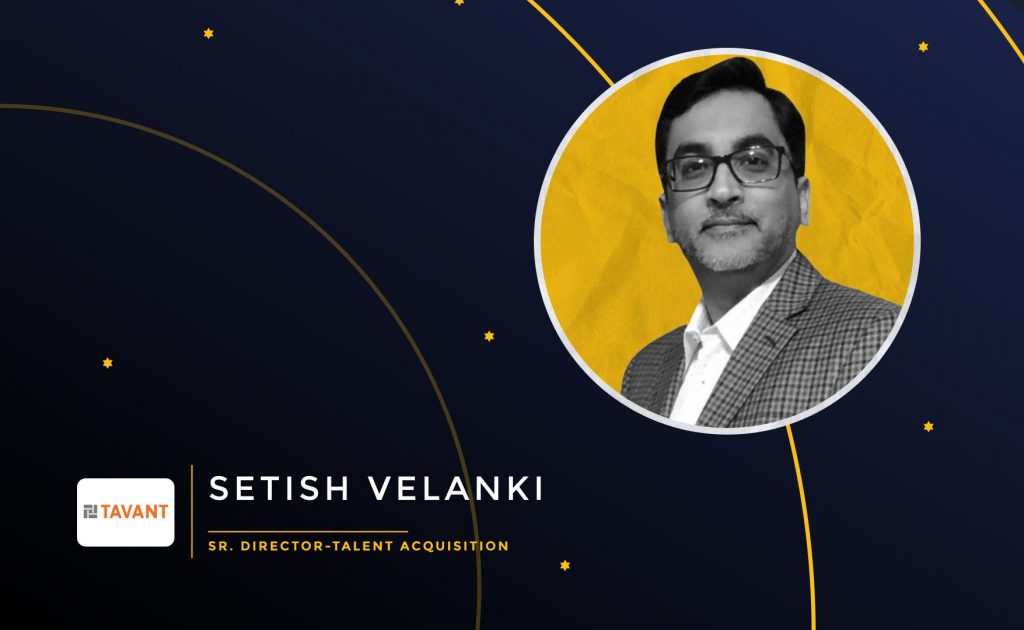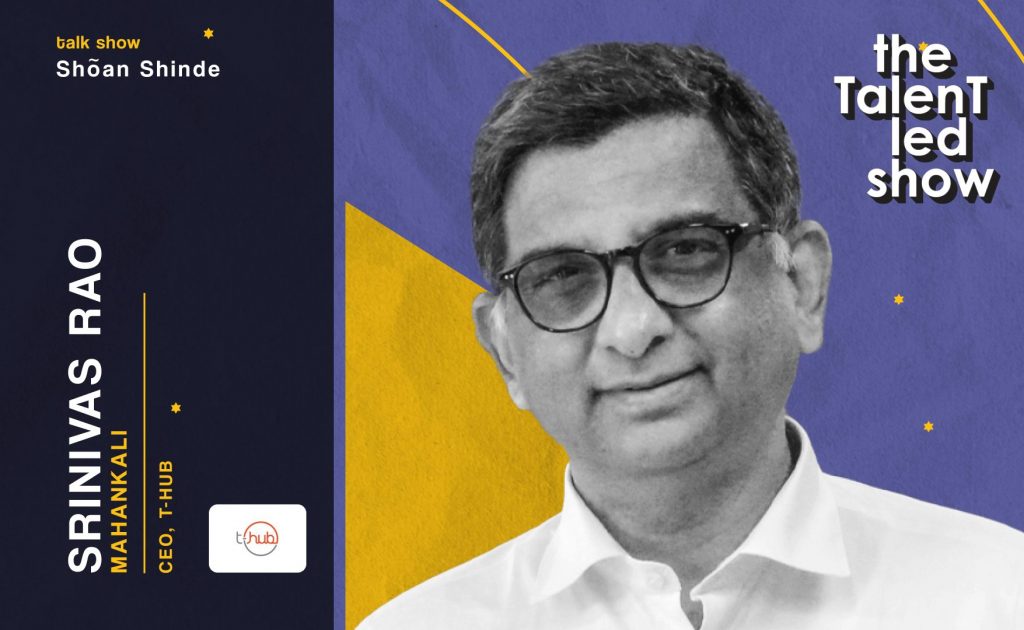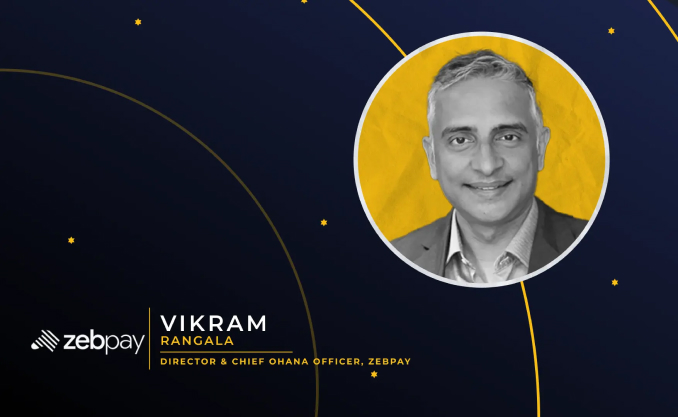Amit Kataria is the CHRO at Minfy with about 16+ years of experience and has also been a part of Hanu and Motorola Solutions in the past.
When asked about how changes have occurred after decades, Amit Kataria states, the core of HR is employee engagement activities we used to have fun Fridays, and late evenings, calling them for dinner. Now you cannot do that on the digital platform. So collaborative working has gone to a different aspect.
Amit Kataria believed that humans will always remain at the core of any HR functions. They would be the ones who would drive those innovations and lead on to generate great results.
Q. There has been a major shift from 2014 to 2016, along with 20+ years of experience how do you think has the world evolved across these three eras, and what is your view as an HR Head?
Changes in HR from a decade back
It has been almost two decades and when I look back, the HR specifically at that time meant you are working a very transactional job. For example, if payroll is to be processed, all you are doing is, filling in the data, and forms, and then submitting it to payroll and giving it to the bank.
Then the changes came up in 2008 when there was a financial crisis and then COVID came in 2020. COVID has brought up the most distraction in the trends we’ve been following in human resources. And why such a change? Because this is an era where companies couldn’t go back to what they were doing before. All earlier crises were a crisis of time impact. What it meant is that as soon as the crisis was over, they went back to the same thing they were doing before. Whereas in COVID that did not happen, because you were made to change permanently.
So, let’s take one example where before the COVID first wave came up, work from home was an option. Companies that were experimenting, and companies that were liberal in their policies allowed their employees to work from anywhere or from home on their basis. But then when COVID came into the picture, they were forced to opt for it.
And if you observe now, very few companies have opted to call back their employees for a full-time job especially now that the COVID era is over.
But that’s what I think is a permanent change within the industry. Just because of that everything has changed to a virtual platform from the HR standpoint of view. And what I feel is that it has brought up lots of change in terms of how HR sees the practices. Assuming the core of HR is employee engagement activities where we used to have fun Fridays, late evenings, and calling them for dinner. Now you cannot do that on the digital platform. So collaborative working has gone to a different aspect. And for us to create that collaborative learning or collaborative work environment on a digital platform, all HR employees had to innovate.
Employees started working more closely with delivery and all other functions. And in a crux what it means is that from a pure transactional or support function, HR now, I would say has become a very core function within the organization that is not only helping delivery with the customer experience, it’s also building upon the success of the organization. I would tell you that from the journey, from the crisis and ups and downs of HR, I see this phase, the last two or three years as the most impactful phase in terms of where HR was. And it brought 20 years of future change within two years. And that’s how I would say HR has evolved in the past few decades.
Q. So what is your thought in terms of how is the new generation who has seen COVID, who just graduated in that era, sees the world going forward?
New generation in the future HR fields
Let me tell you why we started believing in having fresh blood in training. Because four years back I would say it was all coming as a flash point of cloud. All companies were experimenting with legacy systems to cloud solutions. And everybody started looking for a talent pool that existed in the market, right? So now what happened? Everyone was fighting for the same pie because there were only a limited number of resources.
Let’s say we had probably 100,000 resources available on the different skills-based platforms, and infrared data, and then everyone wanted to have those resources. So what happens here is that one guy will be handed at least 10 offers with X value and X+Y offers however candidates would think it over and say why not make it 2X? We couldn’t afford to be in the league of counter offering and offering someone exponential money and then not making any margin of it and then keep doing the service to the industry.
Q. How did the talent hunt change in recent years and how has it affected the entire country’s employment rate?
So, we figured out around 2018 that this is not the way that we would survive or we would add any value to the industry. So we started focusing on developing the talent hunt. We went all routes of this beautiful country and globe and started looking for the most passionate talent in computer sciences and IT. That was the start of the idea where I would say that even I got my interest in academia. We started speaking and we started realizing that the talent which is being produced across India and the globe is not about their learning, it’s about their development. All campuses and universities are working to have them placed and despite that, we produced 14 lakh engineers in a year and the data is only 2.3 lakhs. This indicates that only around 20% are employable and this is a very sorry state for us as a country. We hence thought to work on that and so we started picking the brightest off the mind and start training them through a program called Hanu Azure Academy.
We made sure that the students are placed in good companies even before they graduate from engineering and complete their training. And by the time they pass out they will be employed, drawing a good salary and they have a knowledge that beats a five-year resource within the industry.
And that’s how I think my perspective changed because I work with lateral talent. I work with all scales of talent from executives to freshers. And the beauty of this is that talent is coming fresh out of the industry. They have the skills to make it in their industry if you ensure they are getting adequate learning skills. They are fast forward in contrast to the legacy of the latter which is coming.
Q. What are your thoughts on how talent acquisition might evolve in the next few years?
Talent acquisition in next few years
I would say that the situation “has gone crazy”. And that’s the exact word I use nowadays because it’s a tremendous fight among the competition to get the same talent onboarded. After all, it’s a limited supply. And it was the same reason we started programs like Academy. But then from the situation, which is grim now, I would say it would ease out as the load of cloud adoption or digitalization would weak upon. So, what I’m trying to say is the story that we are facing today there is the acute crunch of equality cloud talent and I’m talking from the perspective of a software services company. Because of the COVID era, there is a race for every company to get digitalized to get adopted to the cloud platforms and set their infrastructure to virtual platforms. However, there are only a handful of people who are doing that and still, there was only a set rate at which you could add new talent so which created a demand and supply gap. But what I see is that this would remain for at least the coming 5 to 8 quarters whereas you would see that there is still fierce competition to attract and onboard the lateral talent but then it would fade out.
Now why would this happen? Because most of the companies would achieve their cloud adoption targets and then again it will come to the same sphere where you had a balance between demand and supply with the talent. Between five to ten years’ experience when you go to market it’s just a matter of a few hours before he or she gets an offer because it’s that fierce now. But eventually it would balance out and then there would be more reality coming in where we would have days when the salary scales which I would say now very arbitrary because we as an Indian company work very differently than how the development world works. After all, in terms of salaries when we talk about expectations now it’s multiple. Earlier you used to work on a percentage basis.
One more thing that I want to add upon is that there would be less gap between demand and supply because the cloud would also have reached its maturity stage. Most companies will be kind of done with their journey coming to the digitalization of platforms and this war would then stabilize.
The winner would only be of course the talent because by that time the salary and skills would have been three times of the developed world. Eventually, everybody will benefit such that the middle class will go to the upper middle class because of the earning potential this COVID era has added in terms of their salary jumps and that’s how I perceive in the coming few years that things would spread out for us.
Q. Would it be like AIML taking over after the cloud adoption is completed or something new that you think would come into place? What are the next waves that could come in?
Next trends that could come across in HR after five years
“I also think your past always gives you a glimpse of your future.”
And I strongly believe in that because every six months the technology changes to something very beautiful. I couldn’t imagine processes such as SAP or ERP, which used to take years and years of getting implemented within a company can now be completed with a single click.
Now if you approach a company, they would meet you online, they won’t even visit you, or your office, and it would all be a virtual process. There will be five teams sitting. You would pass on the KT, take the data, and finalize the process. And that’s what I see 5 to 10 years down the line.
Of course, humans would remain at the core of it, right? They would be the ones who would drive those innovations, and beat AIML which I would say of course reach its peak at some time within two or three years. But then humans would only be the agents of change. How the adoption of technology would be? You as the industry will move to something less dependent on your daily involvement. You would be only focused on the happiness and joy of a human. And the talent which you would be observing as a company would work more towards the holistic approach for technology advancement.
Healthcare would be the one sector that would have the next wave. Let’s say the cloud is gone and it has maturity and decline next five to ten years. I would say the major work and innovations would come within the healthcare industry with how we are currently dealing with all medical issues and as a race, we are struggling with many of the things which are beyond our control. There would be more settled approaches, medical sciences will evolve more and, in that evolvement, technology would play a major role. I see this as a wave in the next 5 to 10 years’ projections and India of course I see would be the major player in contributing to that advancement within the healthcare and medical sciences.
Q. If there is any advice for a young graduate who has just passed an HR degree or MBA degree, what would be your advice to them which will help them with a career?
Advice for young HR aspirants
HR role that I see in the coming time and future would be more towards relationship building, towards making that connection, right? All the operational or transaction work would be taken care of by systems that are present there within it.
So, anybody who is coming to HR, the new recurs, the fresh talent. If you have that passion, where you could relate to someone, where you could know, you love connecting to people around you, where you love solving other problems, where you see that talking to somebody over the phone or teams and solving whatever issues they have and it gives you that satisfaction, jump into HR and that’s a role for you. But if somebody tells you the story of thier life, the problems they face at work and you feel why I’m listening to this, you should give a second thought about coming to HR. And because I see the function, the core of HR is people and would always remain because it’s called human resource, right? And resource in the sense, not the literal work audit what it means that you’re working with people and their mindset, how they are perceiving the situation, your job would be changing whatever perception somebody is coming into or whatever ideas or the circumstances. Your job would evolve to have that person fit into the culture of the organization. You are building it. So as long as you feel connected to that aim, as long as you have a passion and fire to translate into that, HR is the field and just jump into that. If not, think about it and then read more about it, and then do it.
Even before coming to HR, I did my master’s in computers and before that, I did my graduation in physics on it. Why so?
“Because finding that passion, and what you want to do in your life is the most important decision.”
You could take an entire span of your life cycle. So that is the one decision. Somebody takes years and years and somebody takes a few seconds. It took seven years to know what I want to do. Somebody takes only a few seconds and minutes. But that is only from individual to individual. And for you to decide that you want to come into HR and you want to build your career upon it, just focus on the last few statements I made. Do you relate to that? If not, you know the answer.

